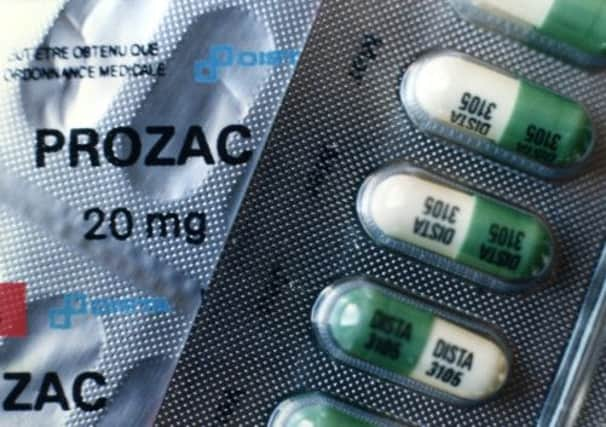Antidepressant prescriptions up 15% in three years


Statistics from the NHS’s Information Services Division (ISD) Scotland show that in 2012-13, more than 5.2 million prescriptions for antidepressants were handed out to patients, up 200,000 on the previous year and 700,000 higher than in 2010-11.
The latest figures equate to almost 14,300 prescriptions every day.
Advertisement
Hide AdAdvertisement
Hide AdThe data also shows the NHS has spent almost £90 million prescribing antidepressants to people in Scotland over the last three years.
The Scottish Conservatives said the figures meant that more prescriptions were given out for antidepressants last year than there were people living in Scotland. Previous estimates have suggested one in seven Scots is now using antidepressants.
The pills are not only prescribed to treat depression, but may also be given for conditions such as neuropathic pain, post-traumatic stress disorder and anxiety.
The reducing price of anti-depressants means the total bill for the NHS has fallen in the last year.
But the Tories pointed out that, in three years, a total of £89,812,333 had been spent on the drugs.
The ISD Scotland figures revealed that a total of 4,488,120 antidepressant “items” were prescribed in 2010-11 at a cost of £28,812,643.
In 2011-12, this increased to 5,015,323 items at a cost of £31,413,645.
And by 2012-13, 5,220,431 items were handed out, costing £29,568,045.
Advertisement
Hide AdAdvertisement
Hide AdThe Scottish Conservatives yesterday urged the SNP to introduce alternatives to taking pills for treating conditions like mild to moderate depression and anxiety. They said this could include more counselling and increasing support for people to lead a more active lifestyle.
Scottish Conservative health spokesman and deputy leader Jackson Carlaw said: “It seems the SNP has gone from promising to reduce the rate of anti-depressants to losing control of them altogether.
“Of course, the medication has a place in treating some mental health problems, but the fear for some time has been doctors are turning to them too readily.”
Rachel Stewart, policy and campaigns manager at the Scottish Association for Mental Health (SAMH), said one in four Scots would experience a mental health problem at some point in their lives and the high number of people taking antidepressants reflected this.
“However, the increase in antidepressant expenditure does not necessarily mean more people are depressed and it could be the case that the same number of people are being given a higher dose, which has been shown to be more clinically effective,” she said.
A Scottish Government spokeswoman said: “We now have a much better knowledge of how antidepressants should be prescribed and how effective they are for a range of conditions, and GPs are becoming increasingly effective at identifying and diagnosing depression in patients.
“Where these drugs are prescribed, it is in line with good clinical practice.”
Bipolar patients missing out on health treatment
PATIENTS with bipolar disorder are missing out on treatment for common health problems such as high blood pressure and heart disease, research suggests.
Advertisement
Hide AdAdvertisement
Hide AdA study presented at the Royal College of Psychiatrists’ International Congress in Edinburgh looked at the records of more than 1.7 million patients across Scotland.
The researchers found that people with bipolar disorder had significantly higher rates of thyroid disorders, chronic kidney disorders, chronic pain, chronic obstructive pulmonary disorder and diabetes compared to other patients.
Patients with bipolar disorder who had been diagnosed with hypertension or coronary heart disease were less likely to be prescribed medication to treat the conditions.
The researchers said the study was further evidence that people with severe mental illness experienced worse physical health and were at greater risk of premature death.
Lead researcher Dr Daniel Martin, from Glasgow University, said: “
“This under-treatment of cardiovascular disease is likely to contribute to a higher risk of premature mortality for people with bipolar disorder and needs to be addressed.”